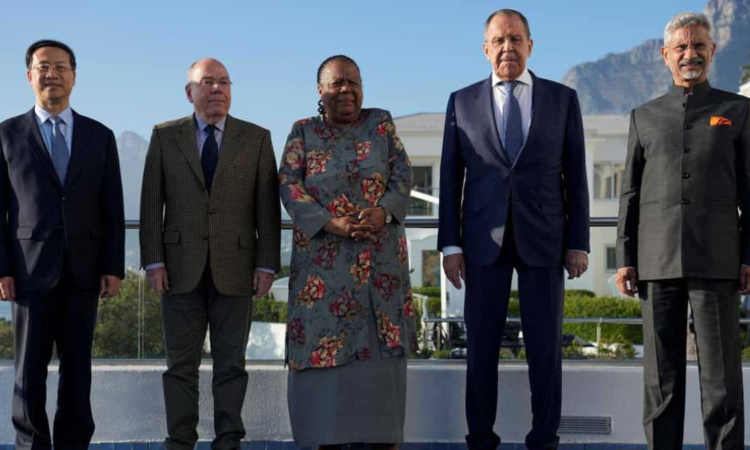
BRICS nations are leading the Greenback backlash against the global hegemony of the US dollar. A potential new shared currency between them, they say, could shield other member countries from the impact of sanctions such as the ones imposed against Russia by the United States and European countries.
The foreign ministers of Brazil, Russia, India, China and South Africa met in Cape Town earlier this week. The shared currency for international trade among the bloc’s nations was an issue that topped their agenda.
The BRICS are looking to “ensure that we do not become victims to sanctions that have secondary effects on countries that have no involvement in issues that have led to those unilateral sanctions,” Naledi Pandor, South Africa’s minister of international relations, told reporters after the meeting.
As part of bloc’s efforts to come up with a shared currency, proposals are reportedly being considered by officials at the New Development Bank, the Shanghai-based lender created by BRICS nations, and the BRICS “will be guided to them as to what the future models might be,” Pandor said.
Greenback backlash: What else is happening?
All over the world, a backlash is brewing against the hegemony of the US dollar.
Brazil and China recently struck a deal to settle trade in their local currencies, seeking to bypass the US dollar.
India and Malaysia have also signed an accord to ramp up usage of the rupee in bilateral trade.
Among its allies, France is starting to complete transactions in yuan.
Also watch | Gravitas: India asks BRICS to fight for terror
In this sudden wave of agreements aimed at sidestepping the greenback, experts detect a sort of gradual, meaningful action that was missing in the past.
For many countries, their reasons for taking these measures are not much different from one another.
The US dollar, they say, is being weaponised to push America’s foreign-policy priorities and punish those that oppose them.
“Countries have chafed for decades under US dollar dominance,” Jonathan Wood, principal for global issues at consultancy Control Risks was quoted as saying by Bloomberg.
“More aggressive and expansive use of US sanctions in recent years reinforces this discomfort—and coincides with demands by major emerging markets for a new distribution of global power,” he added.
You can now write for wionews.com and be a part of the community. Share your stories and opinions with us here.



